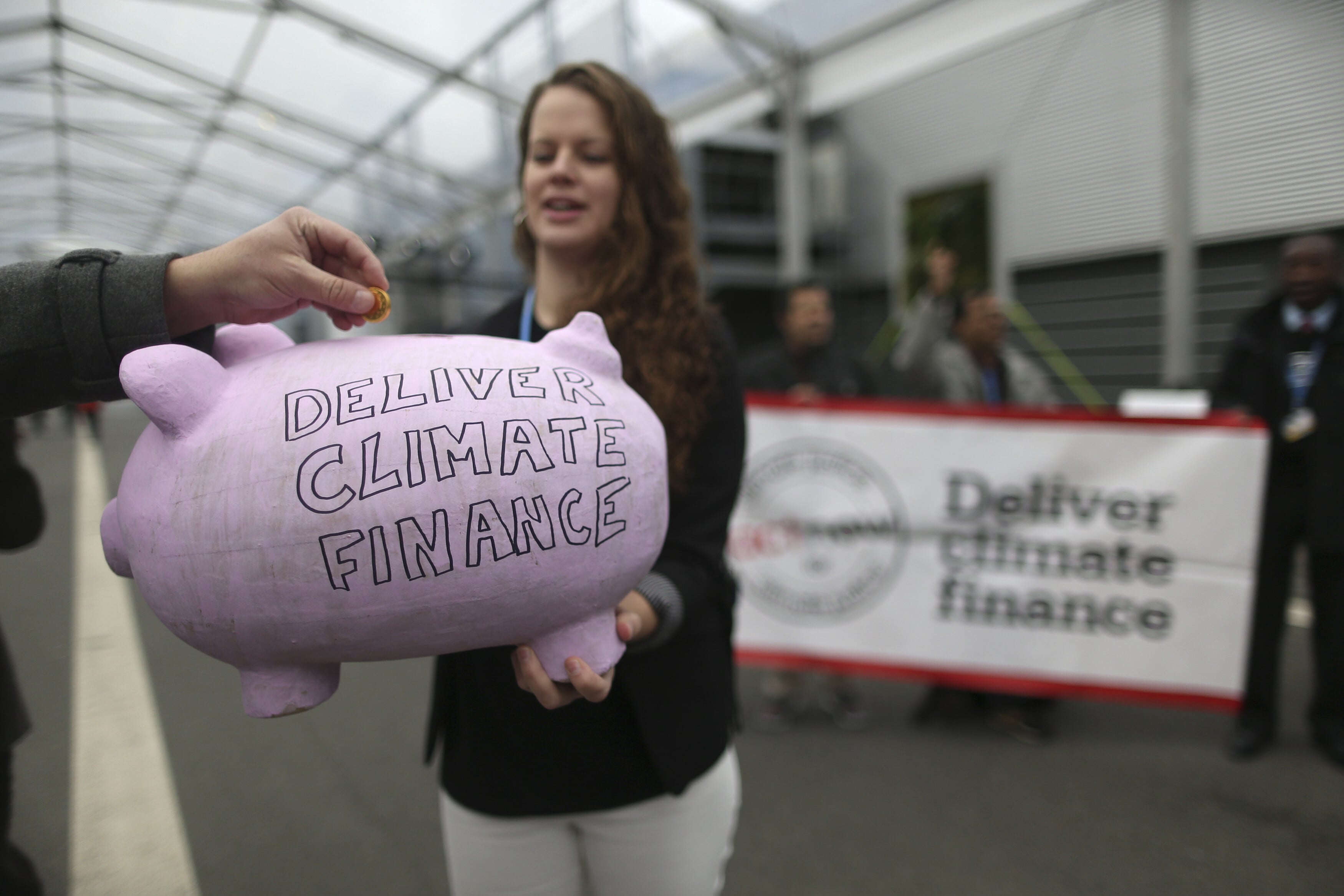Running cities: the rise of a $3 trillion industry

Stay up to date:
Infrastructure
Consider an industry that has annual revenues of $1.8 trillion (as of 2011) in the United States alone – and probably multiples of that globally. It serves billions of customers, providing “services” such as education, health, transportation and security. This “industry” is the business of running cities; i.e. delivering urban services, a space that many economists believe accounts for more than 60% of global GDP. And it is ripe for disruption because of a confluence of macroeconomic trends and technological innovations.
This disruption will spawn a new $3 trillion urban services industry geared towards transforming cities. It will involve public and private sectors working together to create new services, to make cities more efficient and improve the lives of citizens. Underpinning this emergence of urban services are three trends.
The first trend is continued urbanization itself, and the added complexity it creates. By 2050, 70% of the world’s people will live in cities, and this vast scale is making many cities as complex as running a country. With 10,000 people moving from rural communities into cities, there is a need to create a new San Francisco-sized city every month for the next two decades.
Such a massive endeavour requires a new way of building, operating and upgrading cities that is able to replicate technologies and processes. Even established and successful cities will need transformation in management and operations. Consider London’s transportation system: it consists of (in part) 9,000 buses, 270 tube stations, and trains that carry 4 million people daily. It also has 6,000 sets of traffic lights, a cycle-share scheme with more than 185,000 members, thousands of cycles and docking stations; and a fleet of river boats. To manage the staggeringly complex systems that come with growth, cities will have to consider new business models and solutions.
The second dynamic driving the creation of urban services is continued budgetary pressures, which show no signs of abating. For example, the 2014 National League of Cities’ report on the state of urban finances indicates that US cities have not regained pre-recession levels of financial health. City officials are responding conventionally: according to the report, “the most common action taken to boost city revenues has been to increase the amount of fees charged for services, the same approach for much of the past two decades”.
In China, that juggernaut of urbanization, local governments are saddled with debts of 10.7 trillion yuan, according to a 2012 Paulson Institute study on urban finances in the country. Clearly, the need for innovation in the face of budgetary pressure is stark – cities must become smarter about the way they do things.
Lastly, we have the rise of the internet of things (IOT), the cloud and big data. Over the next few years, everything that can be connected, will be. By 2010, 75 billion things will become “smart”, as previously “dumb” products are embedded with computing, storage and communications. City assets – from traffic lights to garbage dumpsters – will mutate into vast mechanisms for data collection and transmission. They will collect data on their own operating performance, as well as on the environment around them, all monitored and managed in the cloud, enabling cities to increase revenues (through selling data for environmental monitoring, for example), and cut costs through increased efficiency.
Much as these forces are making the rise of an urban service industry inevitable, they do not in themselves dictate the nature of how such an industry will evolve. I believe it will develop along three distinct dimensions. The first of these is the sharing of best practices for a fee. This so-called “sharing economy”, when applied to cities, comes in the form of exporting their best practices to generate advisory revenue. Singapore already trains 7,000 foreign government officials every year, but free of charge, as part of its foreign aid programme. However, nothing stops cities such as Dubai or Barcelona – renowned for their technology-enabled transformation – from exploring a for-profit urban-services consulting model.
There will also be a pressing need to upskill city officials, particularly in emerging markets, with both traditional city management skills as well as the capabilities to manage the new technology-intensive city operating environment, and this also could provide a new revenue stream for city coffers.
The sharing of best practices may also help to address global skill imbalances – for example, a surplus of skilled forensic specialists in the West and a chronic shortage in emerging countries. With labour becoming “virtually mobile”, underemployed and unemployed experts in one part of the world may be able to offer their services via the network in another, where their skills are needed.
A second dimension is the outsourcing of city services globally.The economic rationale and technological ability already exists for cities to outsource city management processes; just as the private sector has been leveraging low-cost communication technology and skilled labour for decades. Cities will also move work to places where it can be done more cheaply and effectively.
Certain cities will offer remote management services (e.g. security surveillance or infrastructure monitoring) and eventually they may become centres of excellence for particular domains. Already, Takadu, an Israeli water-monitoring company, is helping water utilities in Australia with water management via sensor-based technology and cloud storage. In fact, the urban services industry may transcend simple outsourcing to more complex arrangements in which certain cities, in partnership with the private sector, offer their expertise via build-own-operate services.
The third dimension is the urban app economy. While consumers and businesses take for granted the presence of 2.5 million downloadable apps across the Apple and Android platforms, a very small percentage are city-services apps. These apps – that draw on the data generated by city assets – will create valuable new services. Already, in places such as Seoul, people rely extensively on privately developed apps that give detailed real-time updates on subway schedules and disruptions.
The rise of urban services will not occur in a straight-line trajectory. Privacy and security concerns may constrain outsourcing within national boundaries. In too many countries, cities are subordinate to federal and state governments, and have little control over budgets and citizen services – this must change. However, we believe economics and new technology are compelling the birth of this new urban services industry. The question is when and how: not if.
The Outlook on the Global Agenda 2015 Report is now live.
More on cities
Are big cities always more expensive?
How can we make cities better places to live?
A new way of looking at urban zones
Who will make our cities better?
Author: Anil Menon is president of Smart+Connected Communities and deputy chief globalization officer, Cisco Systems (India) and a member of the Global Agenda Council on the Future of Cities.
Image: People walk in front of the skyline after a rain storm in Toronto, May 23, 2011. REUTERS/Mark Blinch
Don't miss any update on this topic
Create a free account and access your personalized content collection with our latest publications and analyses.
License and Republishing
World Economic Forum articles may be republished in accordance with the Creative Commons Attribution-NonCommercial-NoDerivatives 4.0 International Public License, and in accordance with our Terms of Use.
The views expressed in this article are those of the author alone and not the World Economic Forum.
Forum Stories newsletter
Bringing you weekly curated insights and analysis on the global issues that matter.
More on Financial and Monetary SystemsSee all
Sandra Waliczek
August 8, 2025
Rebecca Geldard
August 7, 2025
Aurora Matteini and Derek Baraldi
August 6, 2025
Sandra Waliczek and Harry Yeung
July 29, 2025
Pranidhi Sawhney and Adam Skali
July 29, 2025
David Carlin and Sourajit Aiyer
July 28, 2025





